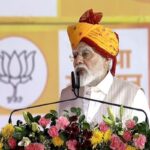Over a month after the Supreme Court said it couldn’t stop them, the Bihar government released the caste survey data on Monday. The court said that the government couldn’t stop releasing the results of the whole exercise unless there was a clear case of violating a constitutional right or lack of competence.
According to the poll, 36.01% of the people are from the Extremely Backward Classes (EBC), 27.12% are from the Backward Classes, 15.52% are from the Upper Castes, 19.65% are from Scheduled Castes, and 1.68% are from Scheduled Tribes. Out of the people who belong to the Backward Classes, 14.26% are Yadavs, 4.27% are Kushwahas, and 2.87% are Kurmi.
In Bihar last year, the ruling Janata Dal (United) and the Rashtriya Janata Dal led the call for the study. They did this to try to get more reservations for backward classes because the current quotas don’t match the number of people in these groups.
Since then, parties in India, including the Congress, have backed the demand. They hope that a list of castes will be the key to undoing the Bharatiya Janata Party’s (BJP) gains in the backward classes and preventing religious divisions before the 2024 national elections.
There were two parts to the survey: from January 7th to 21st and from Aprilth to Augustth. It looked at things like caste, employment, schooling, marital status, land holdings, and property ownership.
In August, chief minister Nitish Kumar said that data from the poll was being analyzed to get a full picture of how different castes are doing in terms of their jobs and money. He made it clear that there was no reason to hold up the process and that the poll was done because it hadn’t been done at the national level before.
In order for the study to be truly national, the opposition group Indian National Developmental Inclusive Alliance (INDIA) has been calling for it. People in Bihar, India, were angry at the Bharatiya Janata Party (BJP) because the Union government stepped in during the hearing of appeals against the Patna high court’s decision to go ahead with the poll.
The Union government told the Supreme Court in August that the survey has “ramifications.” At the same time, the BJP said it supported the survey and that Bihar’s previous National Democratic Alliance government had approved it before Kumar ended the Janata Dal (United)’s alliance with the BJP last year.
In August, the Supreme Court said that there would be no interim orders or stays on the high court’s decision until it was sure that the study was wrong.
People who signed the petition against the poll said it was too much like a census, which can only be done by the Union government. They also said that asking about caste, religion, and job for the poll violated people’s right to privacy and that there was no way to keep this information safe.
The high court said that the Union government is the only one that can do the census. However, it did say that state governments could collect data for welfare programs and affirmative action.
Kumar talked about the socio-economic study that was done along with the census in 2011 and said that they tried to get the data made public but were turned down. Besides that, he said that the census was over. Kumar said that everyone agreed that the caste poll should be done. He has made the case that the practice is necessary and important to advance the cause of social justice.
ALSO READ:Two Pakistani terrorists slain in Kupwara, J&K
Youth For Equality, an NGO, said that the Bihar government’s poll went against the Supreme Court’s nine-judge bench decision in the Puttaswamy case. That decision said that a state can only do something that can affect a person’s privacy if it is allowed by law. According to the lawsuit, the state government ran the whole thing through an executive order.




